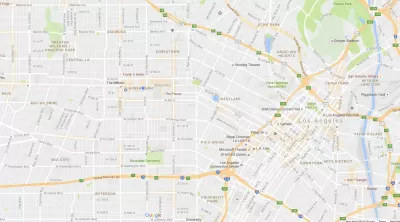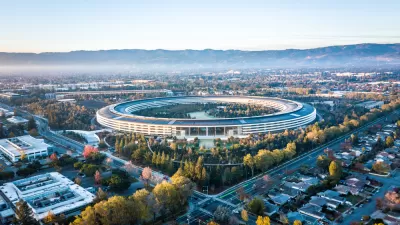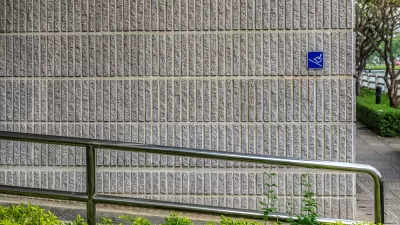Google's new maps redesign calls out areas of interest, but is "interesting" just a euphemism for rich?

"Interesting" is one of those garbage words that doesn't mean much; in different contexts, it's used to mean good, bad, weird, and (once in a great while) worthy of interest. So it was "interesting" when Google launched a new feature highlighting "areas of interest."
The deeply subjective notion of what is interesting seemed problematic (another deeply flawed word) to Joe Cortright. He cites a CityLab piece by Laura Bliss that compared the highlights in the more commercial Westlake neighborhood of Los Angeles to the richer but more residential Sawtelle, finding that Sawtelle seemed to be generously marked as "of interest" even on blocks where the only interesting things would seem to be people's houses.
Still, the word is slippery and Cortright's article in City Observatory goes on to say, "it’s a fair point to suggest that not everyone will find the same set of destinations “interesting,” and it’s likely, given capitalism, demographics and math, that any algorithm-based means of identifying interesting areas will tend to select places that appeal to the masses." Cortright suggests the solution to the "interesting” problem will come from more iteration on the concept of mapping points-of-interest, and he predicts that is likely to happen. "The more data (including everything geolocated on the web, including Google maps and listings, tweets, user reviews, and traffic data) are widely available to end users, and the more different the people who are crafting their own maps, the better we may be able to create images that reflect the diversity of interests of map users."
FULL STORY: The most interesting neighborhood in the world

Planetizen Federal Action Tracker
A weekly monitor of how Trump’s orders and actions are impacting planners and planning in America.

Restaurant Patios Were a Pandemic Win — Why Were They so Hard to Keep?
Social distancing requirements and changes in travel patterns prompted cities to pilot new uses for street and sidewalk space. Then it got complicated.

Map: Where Senate Republicans Want to Sell Your Public Lands
For public land advocates, the Senate Republicans’ proposal to sell millions of acres of public land in the West is “the biggest fight of their careers.”

Orange County, Florida Adopts Largest US “Sprawl Repair” Code
The ‘Orange Code’ seeks to rectify decades of sprawl-inducing, car-oriented development.

Maui's Vacation Rental Debate Turns Ugly
Verbal attacks, misinformation campaigns and fistfights plague a high-stakes debate to convert thousands of vacation rentals into long-term housing.

San Francisco Suspends Traffic Calming Amidst Record Deaths
Citing “a challenging fiscal landscape,” the city will cease the program on the heels of 42 traffic deaths, including 24 pedestrians.
Urban Design for Planners 1: Software Tools
This six-course series explores essential urban design concepts using open source software and equips planners with the tools they need to participate fully in the urban design process.
Planning for Universal Design
Learn the tools for implementing Universal Design in planning regulations.
Heyer Gruel & Associates PA
JM Goldson LLC
Custer County Colorado
City of Camden Redevelopment Agency
City of Astoria
Transportation Research & Education Center (TREC) at Portland State University
Camden Redevelopment Agency
City of Claremont
Municipality of Princeton (NJ)





























